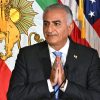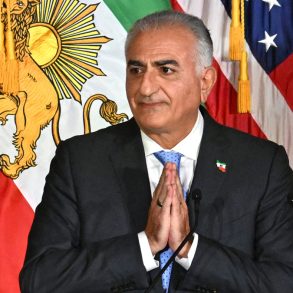The phrase “globalize the intifada” has become one of the most controversial slogans in today’s political discourse. At its core, the Arabic term intifada translates to “uprising” or “shaking off.” Historically, it refers to two Palestinian uprisings against Israel—particularly the Second Intifada, which resulted in hundreds of Israeli civilian deaths, including through suicide bombings and attacks on buses, cafes, and public spaces. For many, especially in the Jewish community, this word is inseparable from violence and terrorism.
“Globalize the intifada,” then, is often interpreted as a call to spread that same form of resistance—violent or otherwise—around the world. While some activists say the slogan is about extending support for Palestinian rights and fighting oppression globally, the phrase’s ties to violent history mean it is often heard as incitement against Jews and those who support Israel.
Mamdani’s Embrace – and Retreat
Zohran Mamdani, a Democratic Socialist and now the Democratic nominee for mayor of New York City, found himself at the center of this firestorm after repeatedly declining to condemn the phrase. In interviews and debates, he argued that “globalize the intifada” is not language he personally uses, but also insisted it wasn’t his job to “police speech.” He framed it as a call for global solidarity, not violence.
However, after weeks of backlash—including concern from Senate Majority Leader Chuck Schumer, House Minority Leader Hakeem Jeffries, and Pfizer CEO Albert Bourla, a Holocaust survivor’s son—Mamdani changed course. In a closed-door meeting with top New York City business executives, Mamdani said he would “discourage” the use of the slogan going forward, though he remained firm in supporting what he called “the idea behind it.”
This pivot is less about a change in belief than a recognition of political reality. With Jewish leaders, CEOs, and members of his own party expressing alarm, Mamdani’s team is working to soften the language without backing down from the ideology behind it.
Is This a Movement?
“Globalize the intifada” has evolved beyond a slogan into something akin to a global movement. It has been chanted at protests from Times Square to London and Berkeley to Amsterdam. It often appears on flyers, graffiti, and social media posts alongside calls for action against Jewish organizations, Israeli businesses, and U.S. corporations tied to Israel.
Some groups use the phrase as part of coordinated protests against companies like BlackRock, The New York Times, and Check Point, posting maps that identify Jewish institutions as targets for “mobilization.” In one viral incident, protesters carried out what many called a “Jew hunt” after a soccer match in Amsterdam. That, combined with violent protests at American universities where Jewish students had to be escorted to safety, has fed the perception that the slogan encourages antisemitic action.
What Does Mamdani Really Believe?
Mamdani, who would be New York’s first Muslim mayor, has tried to walk a fine line. He says he supports universal human rights and that “intifada” means different things to different people. He’s teared up on the campaign trail recalling messages like “The only good Muslim is a dead Muslim,” and has insisted that his rhetoric is about justice, not hate.
But critics aren’t convinced. AJC CEO Ted Deutch bluntly said, “‘Globalize the Intifada’ is not a call for justice; it is a call for violence.” Others, including Rep. Jerry Nadler—one of Mamdani’s early supporters—have privately urged him to disavow the phrase more clearly.
There is now a growing rift between Mamdani’s campaign narrative and the deep fear the slogan stirs among Jews and others concerned about rising antisemitism. His refusal to outright condemn the phrase has raised questions not just about his stance on Israel, but about his broader attitudes toward Jews and non-Muslims. Critics say his hesitation reveals either a lack of understanding or a quiet endorsement of radical views masked by rhetoric about rights and resistance.
Mamdani’s path to City Hall is far from secure. His general election opponents, including Eric Adams and Andrew Cuomo, are courting the same nervous donors and political leaders now eyeing Mamdani warily. Business leaders say they’re worried about his lack of executive experience and socialist economic platform—but it’s the emotional reaction to his handling of “globalize the intifada” that could ultimately define his candidacy.
New York is a city with a large Jewish population, a history of anti-Muslim sentiment after 9/11, and communities on edge after the October 7 Hamas attacks and Israel’s response. Mamdani’s refusal to firmly condemn rhetoric linked to terrorism could signal to some voters that he sees certain communities—especially Jews—as acceptable collateral in a global struggle.
As one aide to a Jewish elected official put it, “He must proactively be clear that language that incites violence against Jews simply isn’t acceptable, from anyone, in the city he wants to lead.”
Whether Mamdani’s rhetorical shift is genuine or calculated, the damage may already be done. The slogan “globalize the intifada” is more than a phrase, it’s a litmus test. And Mamdani’s performance on it is forcing New Yorkers to decide: do they believe his intentions, or fear his instincts?








